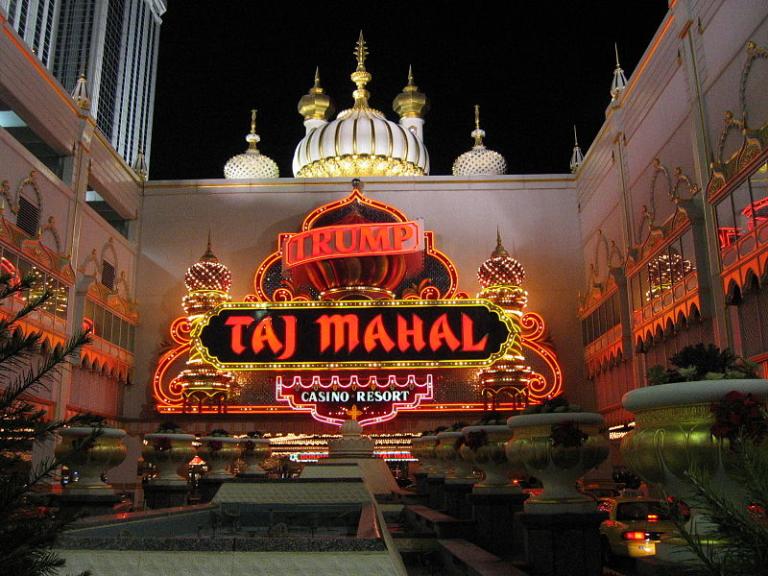
Some who read this blog may not be aware that I was vocally opposed to the nomination and election of Mr. Donald J. Trump. Not because I’m a liberal pinko who supported Hillary — the distaff partner in the Bonnie and Clyde duo of American politics — or because I felt the socialist Bern. Not at all. Precisely because I’m a serious, life-long conservative with strong economic-libertarian leanings. I voted for neither Clinton nor Trump in 2016; for the first time in my life, I felt entirely disenfranchised during that presidential election.
As I see it, the American presidency contains two distinct roles that, in other polities, are divided into two separate offices: The president is both ceremonial head of state (comparable to the monarch in Great Britain or to the president in Israel) and practical head of government (comparable to the prime minister in both Great Britain and Israel). In the former role, he lays the wreath at the Tomb of the Unknown Soldier and leads the country in mourning a space shuttle disaster. In the latter role, he proposes policy, issues administrative edicts, and conducts foreign relations.
One reason for my opposition to Mr. Trump was my conviction that he was and is entirely unsuited to the role of head of state. His crudity, his lengthy record of open and boastful sexual immorality, his admitted and well-chronicled abuse of women, his lack of thoughtfulness, his ignorance and disinterest in learning, his strange combination of vanity and manifest insecurity, his very questionable remarks about Muslims and other American minorities, his mendacity, his disdain for genuine heroes like John McCain, his zest for public personal quarrels — the list goes on and on and on. And on. And on. And still further on. He simply is not a good symbol for our country. Or, if he really is appropriate as such a symbol now, we’re in even worse shape than I had thought.
Another reason, though, was my concern about his politics — in other words, my worry about what he would be like as a head of government. His record of donations to both Republicans and Democrats, his still-recent registration as a Democrat, his unseemly zeal for government overreach in cases of eminent domain, and a host of other issues (including his casual endorsement of what would have amounted to war crimes and atrocities in the battle against Islamist terrorism, and is openly vocal admiration for various authoritarian strongmen) were on my mind. He was, in his latest incarnation, running as something resembling a conservative — or, at least, as what he imagined a conservative to be — but I wondered whether, if he finally gained power, he would govern as a conservative.
I’m relieved to say that, in many ways, he has. He is, I suspect, still playing the hand that won him the presidency. When he essentially outsourced the selection of judges to the Heritage Foundation, that was a good move. It was the best reason of which I was aware for voting for him — heck, it tempted even me for a few minutes, until I realized that I still just couldn’t do that — and Justice Gorsuch is merely the greatest and most obvious result of it. Likewise, I’m pleased that he may be building up our military again, after years of neglect, and I’m pretty happy with our more serious stance against ISIS/Daesh and with several other things. I’m happy, too, and not merely for reasons of personal interest and pension, that the stock market has been going up and that the economy seems to be humming.
I worry, though, about his massive plan for rebuilding our infrastructure. If there’s anything that’s liable to out-of-control pork barrel spending, it’s such large construction projects. Isn’t there a more efficient, federalized, way of doing the needed work? And I remain concerned by the attitudes reflected in the run-up to and the rollout of what is popularly if somewhat inaccurately referred to as his “travel ban” — and have spoken out on the issue.
But my fears of his lack of conservative principle have recently been revived — and acutely so — by his cavalier comments about ignoring legal due process:
“‘As Un-American as Imaginable’: Shepard Smith Blasts Trump’s Remarks on Due Process”
And then there’s the matter of tariffs. I saw a tweet yesterday from my friend, the libertarian economist, investment analyst, and entrepreneur Mark Skousen:
“Trump’s huge tariffs on steel and aluminum imports could be the end of the bull market on Wall Street. This is an incredibly dumb decision to impose steel and aluminum tariffs.”
And here are some other items (chosen almost at random from a very large number of good pieces):
“This Threat of a Trade War Is the Opposite of ‘Drain the Swamp'”
“The Swamp Is Alive! It Is Alive!”
“With His Intentions to Impose Tariffs on Steel, Trump Lights the Protectionist Fuse”
“Trump trade tariffs are a wanton act of economic self-destruction”
“How Tariffs Cause Chaos in the Real World”
Senator Jeff Flake predicted, the other day, that there will be a challenge to Mr. Trump for the 2020 Republican nomination. That may be, and I wouldn’t be surprised if the challenger turned out to be Senator Flake himself. (I would support him, enthusiastically.) I expect, though, that any challenge that might materialize will be quixotic and that it will fail. The Republican Party has been seriously compromised by Trumpism, and I’m not sure that it can be salvaged until Mr. Trump departs from the White House. (I myself resigned from the Republican Party on the night that he accepted the Republican nomination.)
Worse, Trumpism seems to me to have corrupted the American conservative movement. Or, perhaps more accurately, it has revealed that movement to be considerably smaller and weaker than many of us had imagined.
And then there’s what Trumpism has done to American Evangelical Christianity, as prominent pastors like Franklin Graham and Robert Jeffress and many others, who once demanded morality in political leaders (such as Bill Clinton), have prostituted and demeaned themselves in defending absolutely every utterance and act of Mr. Trump. It raises the question, “Can American evangelicalism be saved?” I hope so. But I’m not certain.












